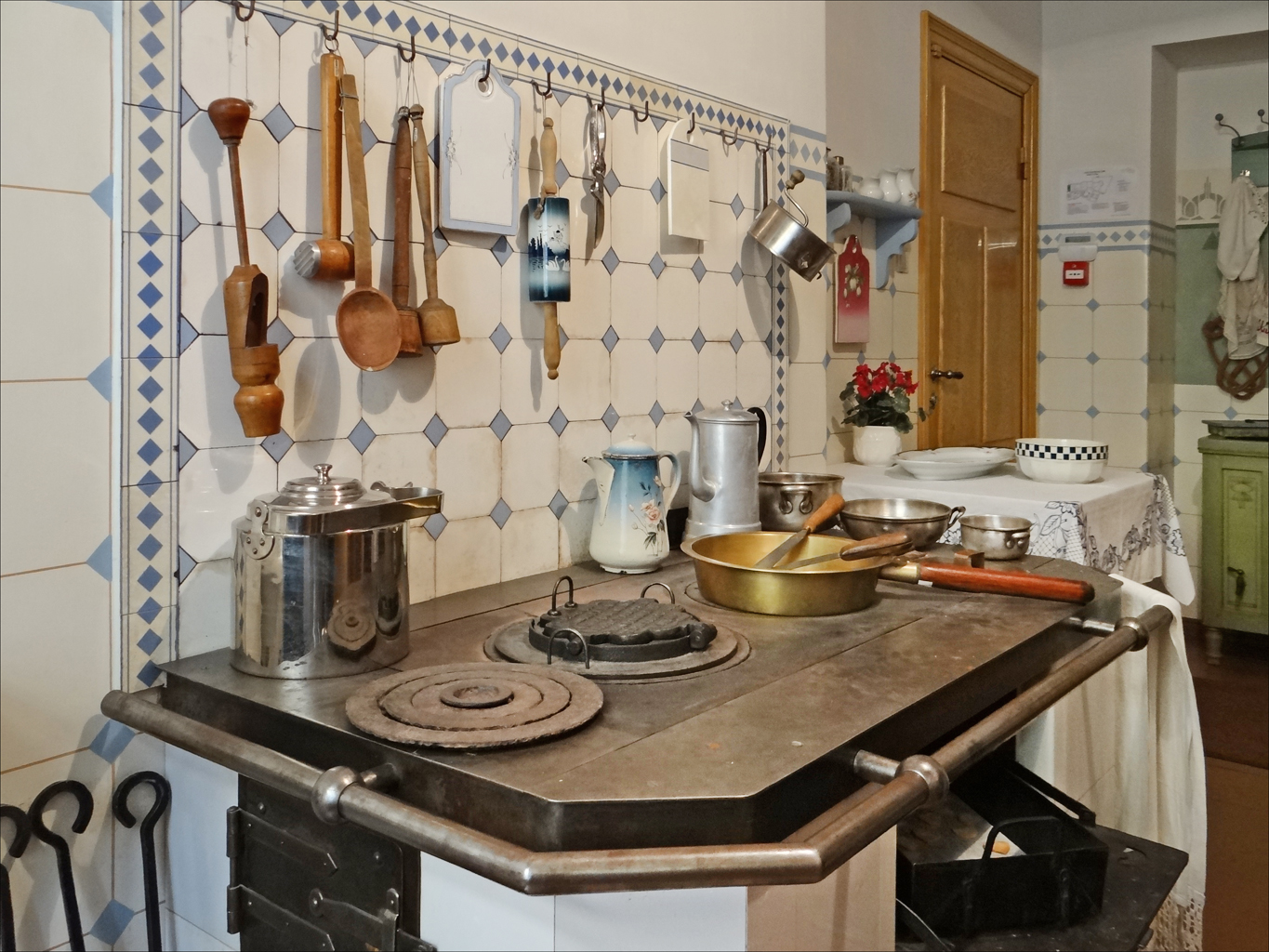13 week cooking course
- Introduction to Cooking
- Understanding Ingredients
- Making Breakfast
- Dinner Delights
- World Cuisine: Asia
- World Cuisine: Europe
- Baking and Bread Making
- Vegan and Vegetarian Cooking
- Gluten Free Cooking
- Healthy Eating and Nutrition
- Kitchen Finale and Consolidation
Introduction to Cooking
Safety in the Kitchen

Space primarily used for preparation and storage of food.
Cooking can be a fun and rewarding activity, but it's important to remember that the kitchen can also be a place where accidents happen. From knife-related injuries to burns and slips, kitchen safety is a crucial aspect of cooking that everyone should be aware of. This unit will cover basic kitchen safety rules, how to prevent and handle kitchen accidents, safe food handling and storage, and fire safety and first aid in the kitchen.
Basic Kitchen Safety Rules
-
Keep the Kitchen Clean: A clean kitchen is a safe kitchen. Regularly clean your cooking area to prevent the buildup of grease or food particles, which can be a fire hazard.
-
Wear Appropriate Clothing: Avoid loose clothing or dangling jewelry that could catch fire or get caught in appliances.
-
Use Knives Safely: Always cut away from your body, and keep your fingers away from the blade. When not in use, store knives in a safe place.
-
Never Leave Cooking Unattended: Unattended cooking is a common cause of kitchen fires. Always stay in the kitchen when you are frying, grilling, or broiling food.
Preventing and Handling Kitchen Accidents
-
Prevent Slips and Falls: Keep the floor clean and dry to prevent slips. Immediately clean up any spills.
-
Handle Hot Items Carefully: Use oven mitts or potholders to handle hot pots and pans.
-
Use Appliances Safely: Follow the manufacturer's instructions when using kitchen appliances. Make sure your hands are dry before plugging or unplugging appliances.
-
First Aid: Keep a first aid kit in the kitchen for minor accidents. For serious injuries, seek immediate medical attention.
Safe Food Handling and Storage
-
Avoid Cross-Contamination: Use separate cutting boards for raw meat and other foods to prevent cross-contamination.
-
Properly Store Food: Refrigerate perishable food within 2 hours. Store raw meat, poultry, and seafood separately from other foods.
-
Cook Food to Safe Temperatures: Use a food thermometer to ensure that food is cooked to a safe internal temperature.
-
Wash Hands and Surfaces Often: Wash your hands with warm soapy water before and after handling food, and after using the bathroom, changing diapers, or handling pets.
Fire Safety and First Aid in the Kitchen
-
Prevent Kitchen Fires: Keep flammable items away from the stove. Regularly clean your oven and stove to prevent grease buildup.
-
Know How to Put Out a Fire: In case of a small fire, use baking soda or a fire extinguisher. Never use water on a grease fire.
-
First Aid for Burns: For minor burns, run cool (not cold) water over the burn for about 10 minutes. Do not use ice. For serious burns, seek medical help immediately.
Remember, safety is the first ingredient in any recipe. By following these guidelines, you can ensure a safe and enjoyable cooking experience.